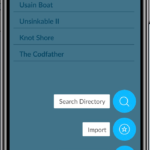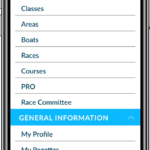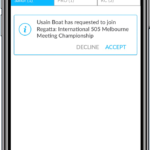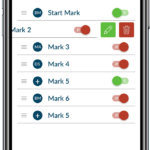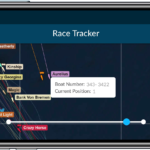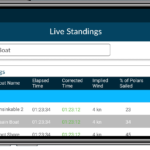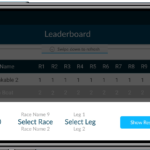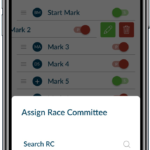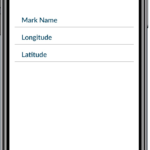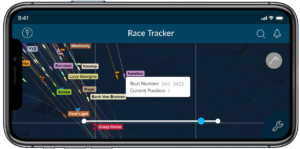
The RTA App will offer live positional data, in corrected time, for Android and iOS phones.
That dumb old smartphone of yours is about to get a whole lot cleverer about organizing and managing classic and modern-classic regattas. Earlier this year, we got a private demonstration of a new mobile race management app from the Sailing Yacht Research Foundation, the Warwick, Rhode Island-based sailing technology incubator.
The app is called the Race Tracker and Analyzer, or RTA, and it attempts to scrub out the hassle and complexity of organizing, tracking, and racing in a regatta.
“The current race tracking experience is too complicated and costly,” says McKenzie Wilson, executive director of the Sailing Yacht Research Foundation, who talked us through the RTA app’s features. “Most sailors just want to know how they’re doing while racing and at the finish line. They don’t want to wait for results back at the dock.”
While the RTA app is far from perfect — it’s still very much in development — the software holds real promise to streamline the handicap racing experience, particularly for classic and modern-classic racing, where boats are so dramatically different.
We think the message to the classic, modern-classic and spirit-of-tradition racers is that the RTA app is worth a closer look!
The Spirit-of-Tradition SmartPhone.
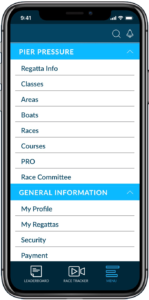
A lot of different families of race information had to be integrated into the app.
As Wilson explains it, it’s not been easy organizing all the information that makes for a good boat race. There’s the handicapping data, the race committee organizational framework, the mark and course information, the mapping, the live standings, and the rules notifications. Each of these has to be culled down into a series of discrete narrative experiences that modern smartphone apps demand.
“If it is not simple enough to work on somebody’s iPhone, that is a failure for us,” says Wilson.
The first challenge was to organize all the various families of information into open-enough forms that can work reasonably-well on mobile devices. One example of the challenges of data wrangling in yacht racing is the handicapping of various boats.
The major handicapping rules like the Offshore Racing Rule or ORR, and International Rating Certificate or IRC, have various levels of transparency. The IRC for example, is privately-owned by the Royal Ocean Racing Club and the Union Nationale pour la Course au Large. Both have strict rules about how their data can be used. Other more targeted handicapping systems, like the Offshore Racing Congress and the Portsmouth Yardstick, have their own handicapping data with limitations. And handicapping rules can’t seem to help but beget other sub-rules: There’s the ORR-EZ, and the ORC Club and the ORC One Design, each that needs to be exactly accounted for analytically.
“Our goal is to provide direct value to sailors every day. We want to democratize access to live tracking and performance analytics,” says Wilson.
But Will The RTA App Work?
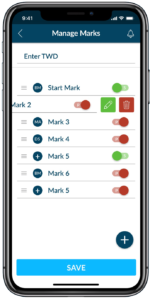
Results will be posted live at each mark rounding.
In short, probably yes. We’re crossing our fingers, but we have been impressed with what we have seen so far. There are Android and iOS versions creeping into release this month. Early testing is beginning with a 10-boat multi-hull class as part of the BVI Spring regatta in March. The plan is to follow the 2019 racing season into the major regattas like St Barth’s Bucket Regatta, the Charleston Race Week in April, then to Block Island Race Week in the summer.
“We are aiming for a public launch for June,’ says Wilson. “We want to get in front of as many RCs and sailors as we can.”
The 2019 rollout should shake out the bugs in automating the headaches in basic predictive performance, how competitors are faring against their own prediction polars and then their relative performance to others in their class.
The RTA app will integrate with publicly-available wind speed and direction data for the entire course. There will be WiFi support for properly equipped boats for seamless data capture and upload for after-race study. That database will be directly link to a boat’s rating estimates and will test against various data points like sails flown, crew weight, and speed metrics.
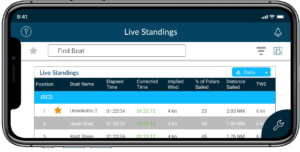
Correct time standing will be up-to-the-minute and live on any smartphone!
“You should be able to see how those changes affect performance,” said Wilson. “That will come in handy for optimizing ratings and handicapping.”
The plan is also to build in race management features, that include the course location, start times and on-water race management tools. But Wilson says, the app will not aim to replace existing race registration tools or classing methodologies.
It’s Still Run On A Cell Phone.
There will be limitations: All features will only work within cell phone range, though there are plans to build in access to satellite trackers. And there will be costs involved. Wilson says the entry price will be roughly $10 per sailor, though there will be a free version for spectators.
“We will just be charging enough to keep the lights on and be self sustaining. We are not seeking to make money on this tool,“ says Wilson.
Unfortunately, it will take some time and effort for the RTA app to flow into classic regattas. So far, few of the basic handicapping rules from our kind of racing, like the CRF, have been ported over to the platform. But getting handicapping rules in the RTA app will not be complex, says Wilson.
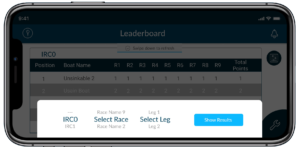
The plan is to integrate all handicapping and race management systems into the app.
“The real thing is, if sailors want it, the race committee will use it,” says Wilson.
Already she says there’s interest in San Francisco at the St. Francis regatta and the goal is to roll the RTA app as deeply into everyday racing as possible. “We want to trickle this down to Beer Can Racing,” says Wilson. “Our hope is, by 2020 we would have 1,000 paying sailors.”
And we think, at least half of them should be classic and modern-classic racers! Assuming the details can get worked out, the RTA app is a great idea.
